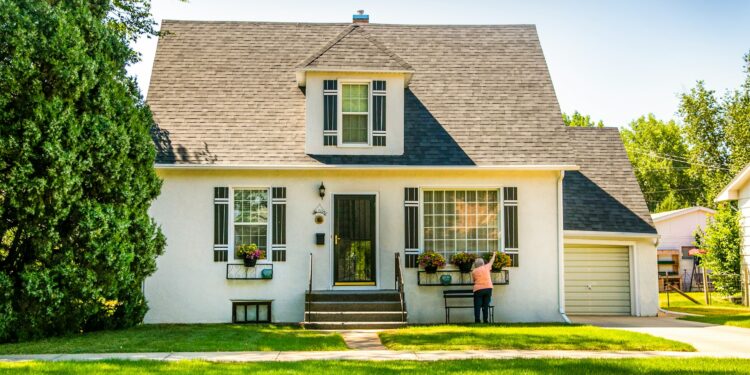Understanding Housing Assistance
Finding stable, affordable housing is a challenge for many individuals and families. Rising rental costs, financial hardships, and unexpected life events can make securing a home difficult. Fortunately, various programs and resources are available to assist with housing needs, whether you’re looking for rental assistance, homebuyer programs, or emergency housing solutions.
Government Housing Assistance Programs
The federal government, along with state and local agencies, provides several housing assistance programs to support low-income individuals and families.
1. Section 8 Housing Choice Voucher Program
One of the most well-known programs, the Section 8 Housing Choice Voucher Program, is administered by the U.S. Department of Housing and Urban Development (HUD). This program helps low-income individuals afford safe and sanitary housing in the private market by providing subsidies that cover a portion of their rent.
How to Apply:
- Visit your local Public Housing Agency (PHA) to check eligibility and apply.
- Due to high demand, many areas have long waiting lists, so it’s best to apply as soon as possible.
2. Public Housing
Public housing consists of government-owned properties offered at reduced rental rates to eligible individuals and families. Unlike Section 8, residents live in designated housing communities rather than choosing private-market rentals.
How to Apply:
- Contact your local PHA to inquire about availability.
- Be prepared to meet income and residency requirements.
3. HUD-Approved Housing Counseling
HUD provides free or low-cost housing counseling services to individuals facing foreclosure, eviction, or rental difficulties. These counselors offer guidance on budgeting, mortgage options, and legal rights.
How to Access:
- Find a HUD-approved counselor at HUD’s official website.
- Many organizations offer virtual or in-person counseling sessions.
Rental Assistance Programs
Apart from federal programs, various rental assistance initiatives can help cover housing costs.
1. Emergency Rental Assistance Program (ERAP)
ERAP provides funds to tenants struggling with rent and utility payments due to financial hardship. This program gained prominence during the COVID-19 pandemic and continues to offer aid in some states.
How to Apply:
- Check with your state or local housing authority for availability.
- Provide proof of income loss and rental obligations.
2. Nonprofit and Charitable Organizations
Several nonprofit groups offer emergency rental assistance, including:
- The Salvation Army – Provides short-term rental help.
- Catholic Charities USA – Offers financial aid for rent and utilities.
- United Way – Connects individuals to local housing resources through its 211 hotline.
Homeownership Assistance Programs
If you’re looking to buy a home but need financial assistance, there are several programs to help make homeownership more accessible.
1. FHA Loans
The Federal Housing Administration (FHA) provides loans with lower down payment requirements and more flexible credit score criteria.
Key Benefits:
- Requires as little as 3.5% down payment.
- Ideal for first-time homebuyers.
2. USDA Loans
The U.S. Department of Agriculture (USDA) offers home loans for eligible rural and suburban buyers with low to moderate incomes.
Key Benefits:
- No down payment required.
- Reduced mortgage insurance costs.
3. VA Loans
Veterans and active-duty military personnel can apply for VA home loans, which offer competitive interest rates and no down payment requirements.
How to Apply:
- Visit the U.S. Department of Veterans Affairs website for eligibility details.
Emergency and Transitional Housing Options
For those facing homelessness or housing instability, emergency shelters and transitional housing programs provide temporary relief while helping individuals regain stability.
1. Homeless Shelters
Many cities have homeless shelters that provide short-term accommodations, food, and access to job placement services.
Where to Find Help:
- Contact local shelters or dial 211 for assistance.
- Reach out to organizations like the National Alliance to End Homelessness.
2. Transitional Housing Programs
Transitional housing bridges the gap between emergency shelter and permanent housing. These programs offer structured, supportive environments to help residents secure employment and financial independence.
How to Access:
- Check with HUD’s Continuum of Care (CoC) Program for available resources.
- Many faith-based organizations also offer transitional housing services.
State and Local Housing Assistance
While federal programs provide broad support, state and local governments often have additional resources tailored to their communities.
1. State Housing Finance Agencies (HFA)
Most states have HFAs that offer down payment assistance, low-interest mortgage loans, and rental support.
2. Local Housing Authorities
Cities and counties often have programs for affordable housing, rent relief, and eviction prevention.
Where to Look:
- Visit your state’s housing department website.
- Contact city or county housing offices for available programs.
Additional Housing Support
If you’re still struggling to find the right housing assistance, consider these additional resources:
1. Legal Aid for Renters and Homeowners
Organizations like Legal Aid Society and the National Housing Law Project provide free or low-cost legal assistance for tenants facing eviction or foreclosure.
2. Housing Cooperatives and Shared Housing
Housing cooperatives offer an affordable alternative to traditional rentals, while shared housing programs match individuals to co-living opportunities.
3. Housing Assistance for Seniors and Disabled Individuals
Programs like HUD’s Section 202 and state-level disability housing grants help seniors and individuals with disabilities secure safe and accessible housing.
Final Thoughts
Navigating housing assistance options can be overwhelming, but understanding the available resources is the first step toward finding stable and affordable housing. Whether you need rental assistance, homebuyer support, or emergency housing, there are programs designed to help you regain stability and security.
If you need immediate help, reach out to local housing agencies, dial 211, or visit HUD’s website to explore assistance options. With the right resources, finding a safe and affordable home is within reach.


















